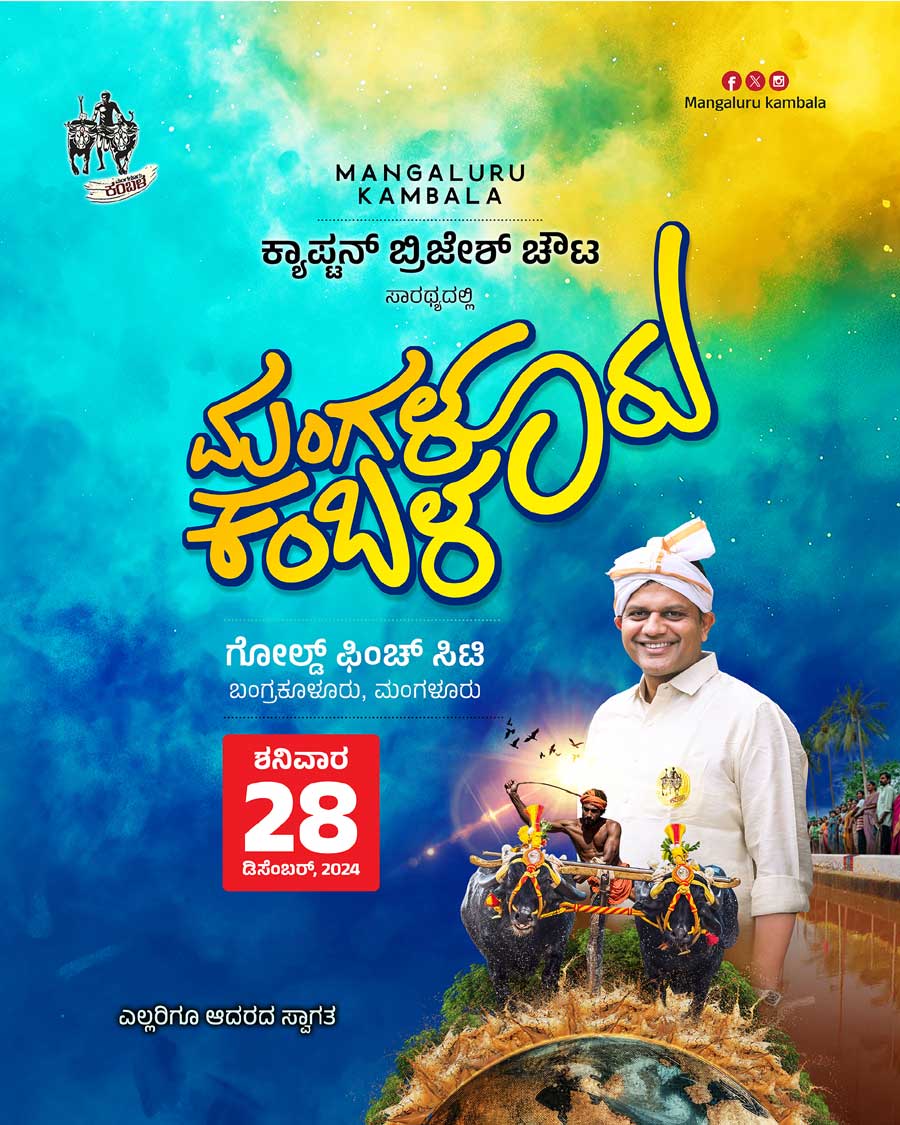Health department treats Indian system of medicine : Khader
3:31 PM, Monday, December 21st, 2015 Mangaluru : Minister for Health and Family Welfare U T Khader said the Health department treats Indian system of medicine on a par with allopathic medicine. An Ayush hospital will come up at the district Wenlock hospital premises in Mangaluru shortly.
Mangaluru : Minister for Health and Family Welfare U T Khader said the Health department treats Indian system of medicine on a par with allopathic medicine. An Ayush hospital will come up at the district Wenlock hospital premises in Mangaluru shortly.
Speaking at the inauguration of the two-day Ayush Habba 2015, organised by the Ayush department, district administration and Ayush Foundation at Pilikula on Saturday, he said that Ayush was the greatest contribution of Indians to the world. The Ayush habba is an attempt to promote traditional systems of medicine among the public by bringing them on a common platform, Khader said.
Noting that one can keep diseases at bay by moving closer to nature, he called upon Ayush students to practise the system, instead of prescribing allopathic medicine to their patients.
The minister said that the Ayush Board will organise a global wellness meet in Bengaluru from February 12 to 14. A holistic conference will be held in Bengaluru on January 2 and 3. The Allopathy and Ayush system of medicine should work in coordination, he added.
In a memorandum submitted to the minister, district Ayush officer Dr Devadas said that the government should earmark land fund for Ayush Bhavana in Mangaluru. To promote Ayush among the public, the government should set aside Rs one crore in the budget to organise various activities. The government should release funds to organise Ayush habba every year, he added. The festival was inaugurated by district incharge Minister Ramanath Rai.
 Stalls showcasing special ayurvedic treatment practices such as Nadi, Marma, Kalari and Yoga, besides Ayurveda medicines attracted the people. Stalls on healthy food too were a major attraction. Students from various colleges served the public with a variety of healthy juices, carrot tomato soup, mixed vegetable soup, pineapple lime soup, palak roti, beetroot roti, sprouted vegetable salad and fruit salad.
Stalls showcasing special ayurvedic treatment practices such as Nadi, Marma, Kalari and Yoga, besides Ayurveda medicines attracted the people. Stalls on healthy food too were a major attraction. Students from various colleges served the public with a variety of healthy juices, carrot tomato soup, mixed vegetable soup, pineapple lime soup, palak roti, beetroot roti, sprouted vegetable salad and fruit salad.
There was an expo of different varieties of paddy grown organically. Farmer A Nagappa of Muddanna Savayava Krishikara Balaga from Harihara in Davangere district informed that 18 members of the Balaga have been cultivating 150 varieties of paddy with each farmer growing 20 to 25 varieties. Some of the native paddy varieties exhibited are Rajamudi, Rathnachudi, Kari Gajavili, Navura, Karinellu, Karijeddu, Nereguli, Sannavalya, Yedikuni, Karikanthaka, Muthina Sanna, Mapillai Samba, Nethi Bhatha, Kari Basumathi and so on.
Organically grown vegetables too were exhibited at the venue. Apart from this, there was an exhibition of medicinal plants such as Hippali, Ollekodi, Ashoka, Nirgundi, Ankola, Sindhoori and Bakula.
 Eight breeds of cattle including ‘Kapila,’ ‘Malnad Gidda,’ ‘Tharparkar,’ ‘Sahiwal,’ Hallikar,’ Amrit Mahal from Surabhi Vana Goshala and Kompadavu were another attraction.
Eight breeds of cattle including ‘Kapila,’ ‘Malnad Gidda,’ ‘Tharparkar,’ ‘Sahiwal,’ Hallikar,’ Amrit Mahal from Surabhi Vana Goshala and Kompadavu were another attraction.
Simillar Posts
Warning: count(): Parameter must be an array or an object that implements Countable in /home/megamcaq/public_html/wp-content/plugins/post-plugin-library/common_functions.php on line 357
- None Found
Leave a Reply
© Copyright 2008 www.megamedianews.com All Rights Reserved. Privacy Policy









 Posted in
Posted in  Tags:
Tags: 




